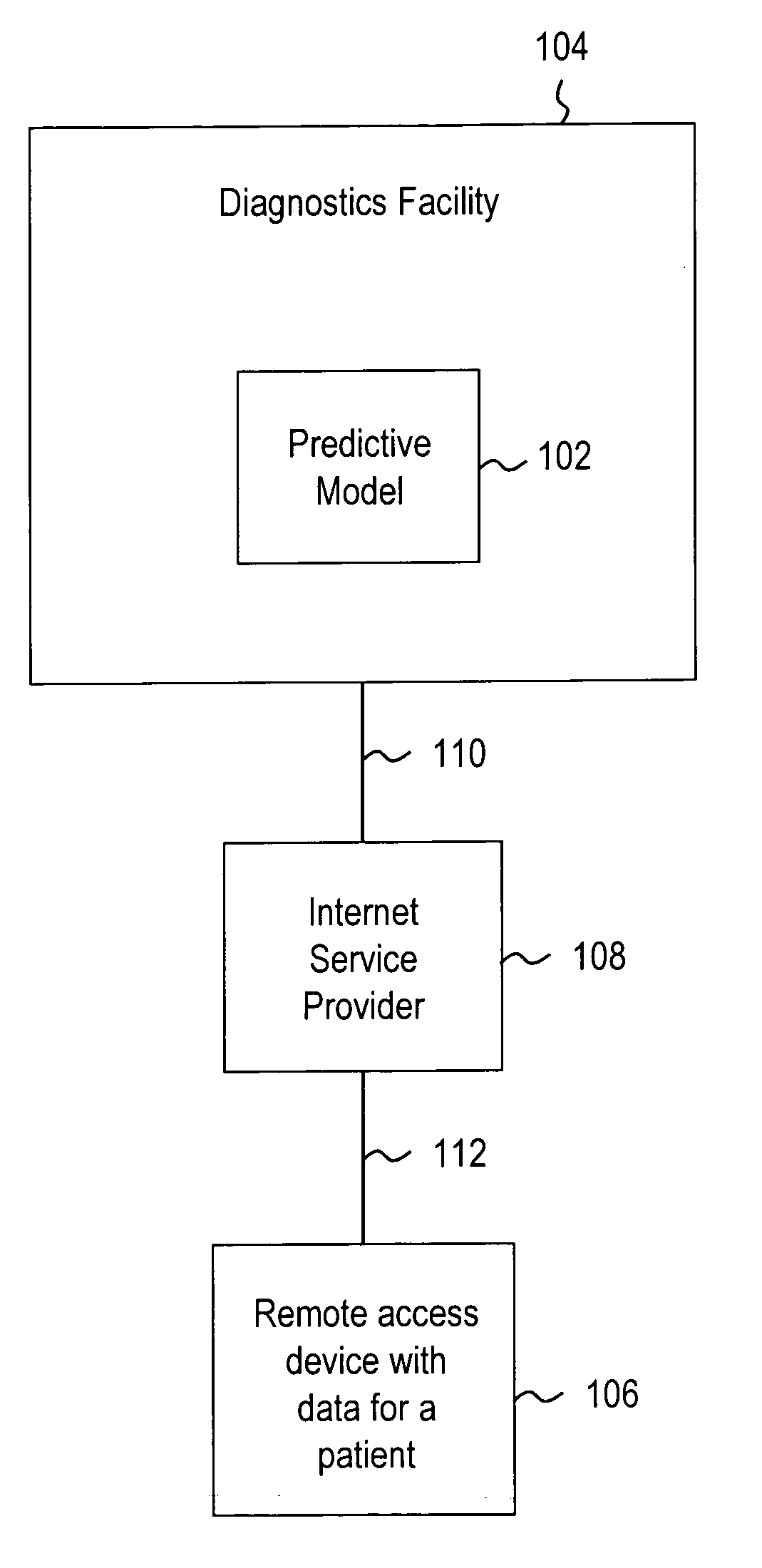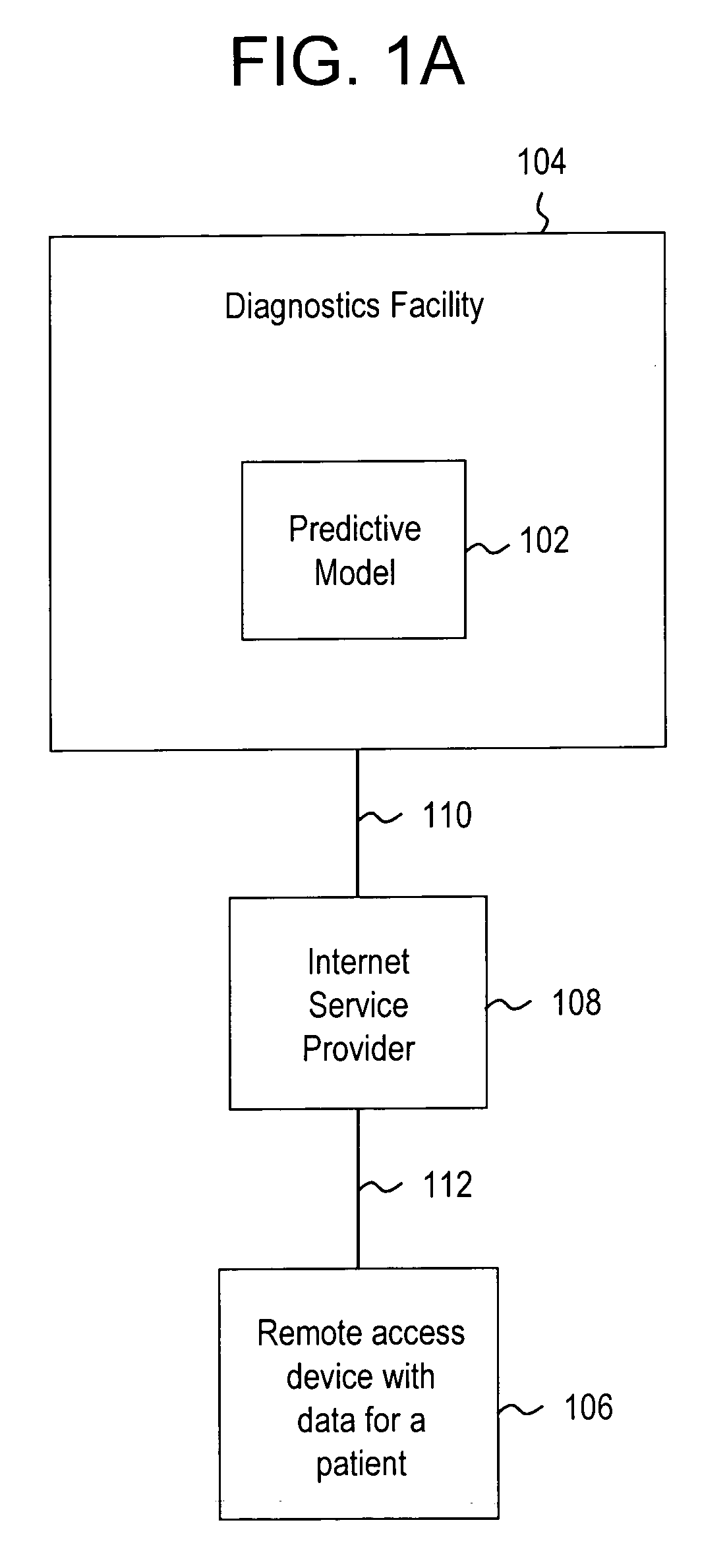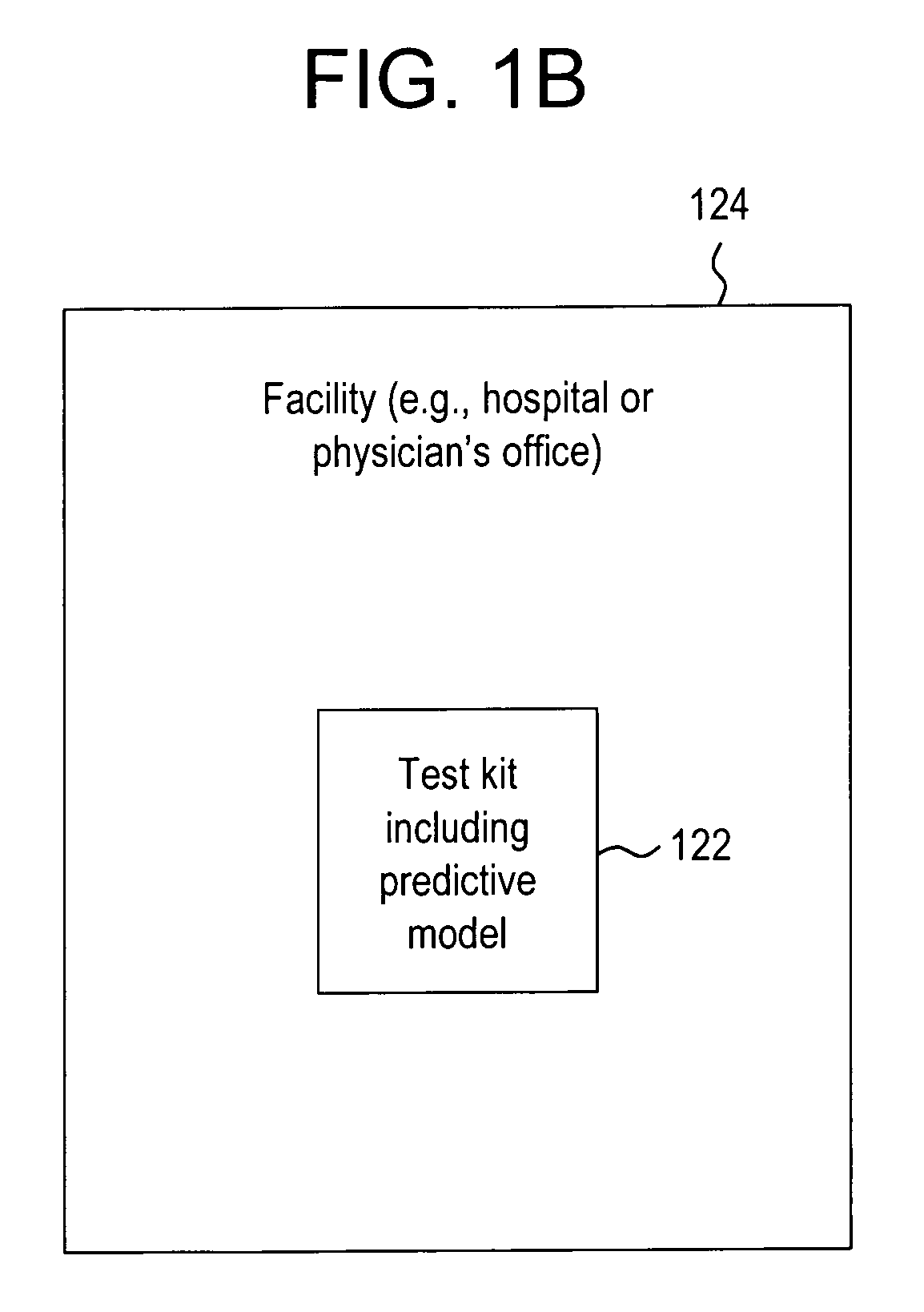Systems and methods for treating, diagnosing and predicting the occurrence of a medical condition
a technology of medical condition and system, applied in the field of system and method for treating, diagnosing and predicting the occurrence of a medical condition, can solve problems such as conflicting interpretations, limited scope and application of conventional tools for assisting physicians in medical diagnosis, and tools for assisting physicians with prostate cancer treatment after a patien
- Summary
- Abstract
- Description
- Claims
- Application Information
AI Technical Summary
Benefits of technology
Problems solved by technology
Method used
Image
Examples
example 1
Prediction of Prostate Cancer Recurrence
[0097]Clinical and Morphometric Data
[0098]A number of raw morphometric features initially as large as five hundred was extracted from each prostate tissue image using the MAGIC tissue image analysis system which is based on Definiens Cellenger software. The full set of raw features was chosen agnostically to avoid disregarding potentially useful features. However, all of these morphometric features were not likely to be equally informative, and a prediction model built based on the full feature set would be likely to have poor predictive performance due to the “curse of dimensionality” [13]. So a dimensionality reduction procedure was applied, and a set of eight morphometric features was finally selected.
[0099]A study was conducted based on a subset of 153 patients from a cohort of prostate cancer patients who underwent radical prostatectomy. Measurable prostate specific antigen (PSA) after the operation was used to define prostate cancer recu...
example 2
Prediction of Prostate Cancer Recurrence and Overall Survival
[0106]Clinical, Morphometric and Molecular Data
[0107]Two studies were conducted which successfully predicted prostate specific antigen (PSA) recurrence with 88% and 87% predictive accuracies, respectively. By combining clinical, molecular, and morphometric features with machine learning, a robust platform was created which has broad applications in patient diagnosis, treatment management and prognostication. A third study was conducted to predict overall survival of prostate cancer patients, where the outcome of interest was death due to any cause.
[0108]A cohort of 539 patients who underwent radical prostatectomy was studied incorporating high-density tissue microarrays (TMAs) constructed from prostatectomy specimens. Morphometric studies were performed using hematoxylin and eosin (H&E) stained tissue sections and molecular biological determinants were assessed with immunohistochemistry (IHC). A predictive model for both P...
example 3
Prediction of Aggressive Disease Subsequent to Prostatectomy
[0209]Clinical and Morphometric Data
[0210]This study was undertaken to predict aggressive disease (i.e., clinical failure as demonstrated by a positive bone scan representing metastatic prostate cancer to bone) subsequent to a patient having a prostatectomy. Prior to the present invention, no accurate analytical tools existed for providing such a prediction. As described above, the systems pathology approach of the present invention has been shown to accurately predict PSA recurrence. This study demonstrates that the present invention can also be used to accurately predict distant bone metastasis after prostatectomy.
[0211]A cohort of 119 patients who underwent radical prostatectomy was studied incorporating tissue microarrays (TMAs) constructed from prostatectomy specimens. Morphometric (i.e., image analysis) studies were performed using hematoxylin and eosin (H&E) stained tissue sections, and biological determinants were a...
PUM
 Login to View More
Login to View More Abstract
Description
Claims
Application Information
 Login to View More
Login to View More - R&D
- Intellectual Property
- Life Sciences
- Materials
- Tech Scout
- Unparalleled Data Quality
- Higher Quality Content
- 60% Fewer Hallucinations
Browse by: Latest US Patents, China's latest patents, Technical Efficacy Thesaurus, Application Domain, Technology Topic, Popular Technical Reports.
© 2025 PatSnap. All rights reserved.Legal|Privacy policy|Modern Slavery Act Transparency Statement|Sitemap|About US| Contact US: help@patsnap.com



